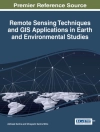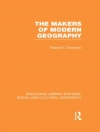‘A thorough and absorbing tour of the sub-discipline… An essential acquisition for any scholar or teacher interested in geographical perspectives on political process.’
– Sallie Marston, University of Arizona
‘This unique book is a true encyclopedia of political geography.’
– Vladimir Kolossov, Institute of Geography of the Russian Academy of Sciences and Vice President of the IGU
The SAGE Handbook of Political Geography provides a highly contextualised and systematic overview of the latest thinking and research in the field. Edited by key scholars, with international contributions from acknowledged authorities on the relevant research, the Handbook is divided into six sections:
- Scope and Development of Political Geography: the geography of knowledge, conceptualisations of power and scale.
- Geographies of the State: state theory, territory and central local relations, legal geographies, borders.
- Participation and representation: citizenship, electoral geography, media public space and social movements.
- Political Geographies of Difference: class, nationalism, gender, sexuality and culture.
- Geography Policy and Governance: regulation, welfare, urban space, and planning.
- Global Political Geographies: imperialism, post-colonialism, globalization, environmental politics, IR, war and migration.
The SAGE Handbook of Political Geography is essential reading for upper level students and scholars with an interest in politics and space.
Tabella dei contenuti
PART ONE: THE SCOPE AND DEVELOPMENT OF POLITICAL GEOGRAPHY
The Politics of Political Geography – Guntram Herb
The Geography of Political Geography – James Sidaway
Geographies of Space and Power – Joe Painter
Feminist Transformations of Political Geography – Eleonore Kofman
PART TWO: STATES
Theorizing the State Geographically – Merje Kuus and John Agnew
Sovereignty, Subjectivity, Territoriality
State and Society – Stuart Corbridge
Planning, Space and Government – Margo Huxley
Welfare Provision, Welfare Reform, Welfare Mothers – Kim England
Making Space for Law – Nick Blomley
Coercion, Territoriality, Legitimacy – Steve Herbert
The Police And The Modern State
PART THREE: RE-NATURING POLITICAL GEOGRAPHY
Theorizing the Nature-Society Divide – Bruce Braun
The State in Political Ecology – Paul Robbins
A Postcard to Political Geography from the Field
Regulating Resource Use – Karen Bakker and Gavin Bridge
Global Environmental Politics – Becky Mansfield
The Politics of Transition – Joshua Muldavin
Critical Political Ecology, Classical Economics and Ecological Modernization in China
PART FOUR: IDENTITIES AND INTERESTS IN POLITICAL ORGANIZATIONS
Nation-States and National Identity – Jan Penrose and Richard Mole
Working Political Geography Through Social Movement Theory – Michael Brown
The Case of Gay and Lesbian Seattle
Contrapuntal Geographies – Noel Castree, David Featherstone and Andrew Herod
The Politics of Organising Across Socio-spatial Difference
The Political Geography of Many Bodies – Arun Saldanha
Transnational Political Movements – Paul Routledge
PART FIVE: FROM ′LA GEOGRAPHIE ELECTORALE′ TO THE POLITICS OF DEMOCRACY
Place and Vote – Ron Johnston and Charles Pattie
The Territorial Politics of Representation – Benjamin Forest
Democracy and Democratization – Lynn A. Staeheli
Convening Publics – Clive Barnett
The Parasitical Spaces of Public Action
PART SIX: GLOBAL POLITICAL GEOGRAPHY
`Global′ Geopolitics – Simon Dalby
Geo-graphers – Elena Dell′Agnese
Writing Worlds
Empire – Alan Lester
Re-Bordering Spaces – Jouni Hakli
Transnationalism and (Im)mobility – Rachel Silvey, Elizabeth Olson and Yaffa Truelove
The Politics of Border Crossings
Spatial Analysis of Civil War Violence – John O′Loughlin and Clionadh Raleigh
PART SEVEN: THE POLITICS OF UNEVEN DEVELOPMENT
Political Geography of Uneven Development – Peter Taylor
The Politics of Local and Regional Development – Andrew Wood
The Politics of Localization – Giles Mohan and Kristian Stokke
From Depoliticizing Development to Politicizing Democracy
′Development′ in Question – Hariprya Rangan
Sustainable Development and Governance – Yvonne Rydin
Urban Governance in the South – Sue Parnell
The politics of rights and development
Circa l’autore
Current research builds on my book, Ordinary Cities: Between Modernity and Development (Routledge, 2006) which develops a postcolonial critique of urban studies, presenting resources for cutting across the thinking which has divided understandings of Western and Third World Cities. I argue against perspectives which categorize cities as Global, Third World, Mega, African etc. and suggest instead an attentiveness to the diverse trajectories of ′ordinary cities′. This work has strong implications for the practices of urban studies internationally, and invites a regrounding of comparative urbanism in rigorous practices able to encompass both wealthier and poorer cities so as to generate approaches to understanding cities which are properly international. Future plans include an empirical project to exemplify comparative methods incorporating wealthier and poorer cities, taking as the object of study the ubiquitous technology of developing city strategies and visions. This will also enable an investigation of the international circulation of urban policy to understand how policy arrives in and is adopted or adapted in different localities. The research will press an engagement with analyses of neoliberalism in urban studies to incorporate perspectives from cities in poorer contexts. It contributes to conceptualisations of the spatialities of circulation, reflecting my wider interests in general theoretical accounts of space.
Previous research has centred on the relationship between power and space, specifically in cities and mostly in relation to South African politics. For example, I have written on the 1936 Empire Exhibition in Johannesburg to explore spaces of racial interaction in South African cities. I have also written on issues in feminist politics, including questions of difference and methodology, and more recently on the implications of Julia Kristeva′s psychoanalytic writing for feminist theorizations of space. More broadly, I have explored ways of postcolonializing the theoretical and empirical practices of Geography.












